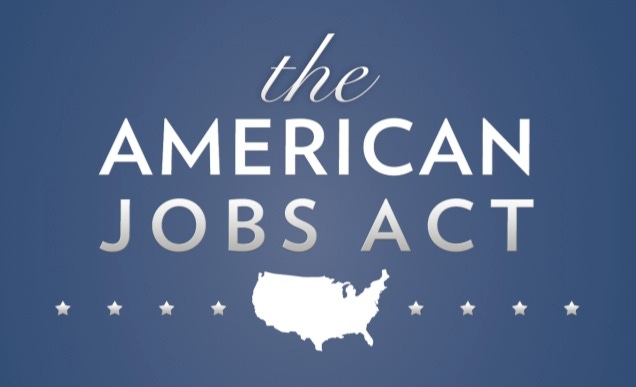One of the key provisions of the JOBS Act—the lift of the ban on general solicitation and advertising—just went into effect. This change makes it easier than ever for small companies to efficiently find and court investors. Find out how.

September 23, 2013, marked an important day for small businesses that are—or will be—looking for capital. Historically, one of the greatest challenges for a growing business has been attracting investors. This is especially true for consumer product companies.
When seeking capital, many companies decide to offer securities to accredited investors through a “safe harbor” exemption in the Exchange Act. This allows them to avoid the onerous and costly process of SEC registration. However, until today, companies utilizing this exemption were restricted from “general solicitation and advertising” that it ultimately restricted them from public communication about their securities offering, making it even more difficult to find investors efficiently.
In April 2012, President Obama signed into law the JOBS Act. This Act was aimed at providing solutions to small businesses looking to raise capital and create jobs. One of the key provisions of this Act—the lift of the ban on general solicitation and advertising—went into effect today. The implication of this is that companies that choose to utilize this new exemption can reach through their networks to find investors, a far more efficient process than before.
Social solicitation
Think about the powerful networks that companies have built through social networking tools like LinkedIn and Facebook. Now those companies can use these tools as a part of the fundraising process. Beyond LinkedIn and Facebook there are even more efficient tools. These are crowdfunding sites, such as CircleUp, whose specific purpose is to connect growing businesses with interested investors. The benefit of crowdfunding sites to entrepreneur and investor alike is that those entrepreneurs and investors who make up the network have mutually beneficial interests: they either seek an investor or they seek an investment. With CircleUp the network is even more well-defined: it is limited to consumer product companies.
Of course, there are rules and restrictions that companies need to be aware of and as always, companies need to consult legal counsel. When offering securities through this new 506(c) exemption that allows for general solicitation, companies need to satisfy all conditions of that exemption. Among these conditions are all purchasers must be accredited investors and the issuer must take reasonable steps to verify that the purchasers of the securities are accredited investors. As always, it is incredibly important to consider what and how you are communicating to investors and talk this through with your counsel.
General solicitation, when used properly, has the potential to add momentum to the fundraising process for many small companies. This is especially the case for consumer product companies that have a loyal and passionate customer base and following. Many consumer product companies are already using social media to reach their customers and have developed strong networks—Why not leverage this in the fundraising process? These consumer product companies also have very tangible products that engage investors and facilitate the diligence process making these companies great candidates for general solicitation. For many reasons, today is an exciting day for many small businesses, especially consumer product businesses.
About the Author(s)
You May Also Like




